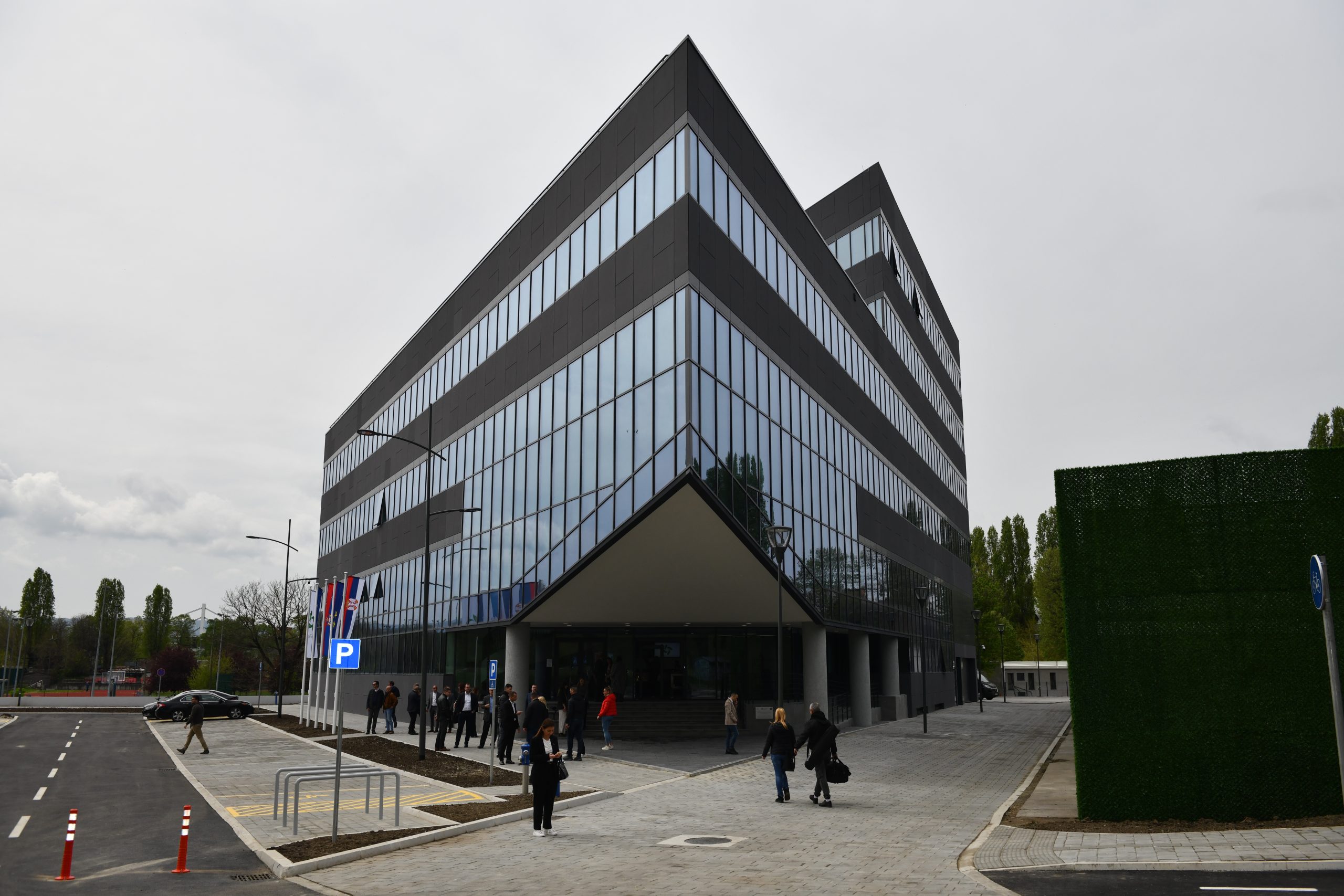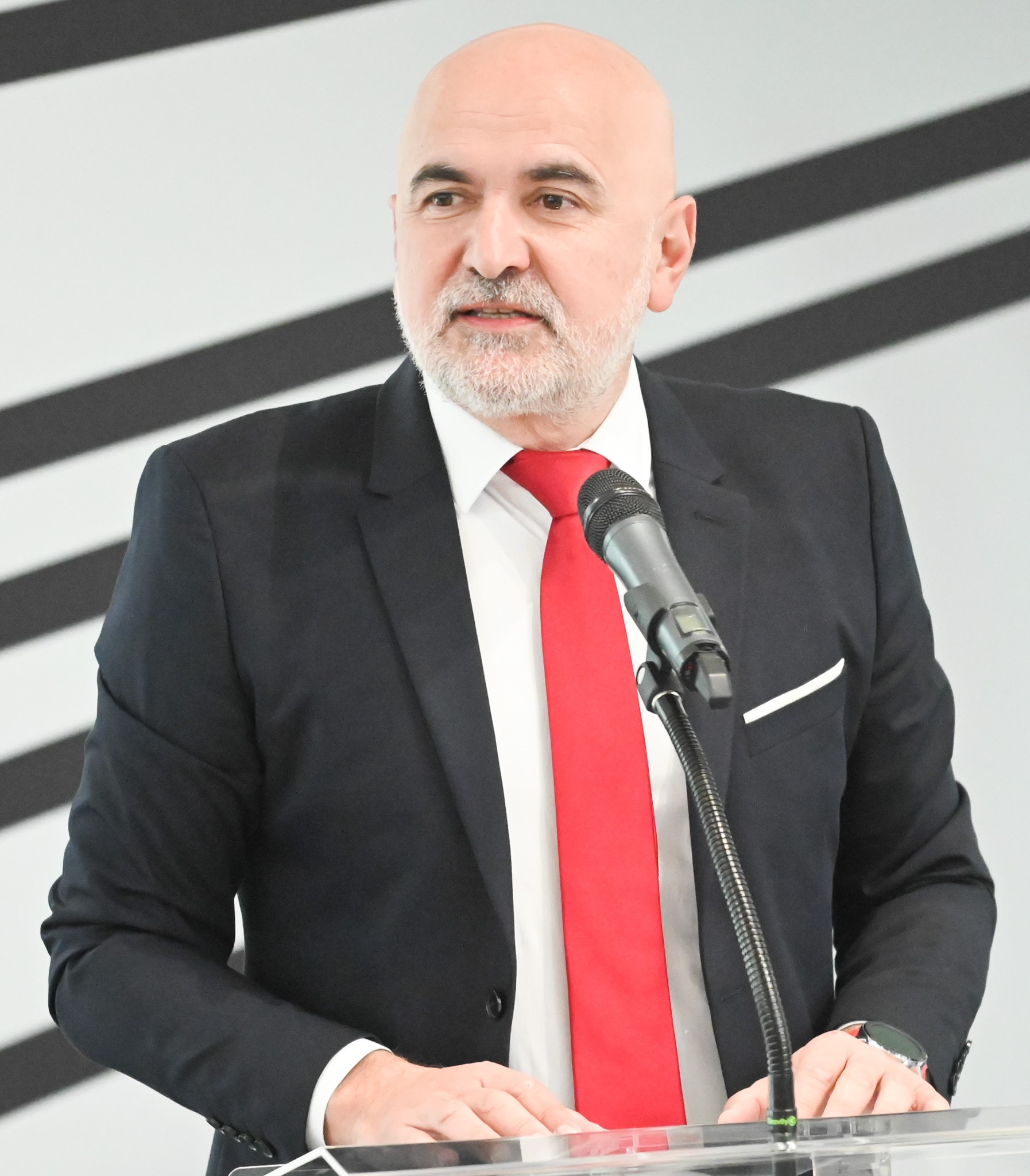
BioSense, the pioneering Research and Development Institute for IT in Biosystems, is leading the charge in revolutionizing agriculture through digital innovation in Serbia. Since its establishment in 2015, the institute has been at the forefront of exploring the latest scientific and technological advancements in applying IT to agriculture. Its primary objective is to deliver state-of-the-art digital solutions to the farming sector in Serbia and worldwide, empowering farmers to achieve higher yields with optimal investments. The impact of BioSense’s scientific breakthroughs extends far beyond the confines of their laboratories. These innovations are seamlessly integrated into society, benefitting farmers, extension services, companies, policymakers, students, and pupils alike.
To support the BioSense Institute, the EU is providing funding through the ANTARES Project, with a generous grant of €14 million from the Horizon 2020 EU program “Spreading Excellence and Widening Participation. “The Government of Serbia has also made a significant contribution of €20 million, a portion of which was obtained through a favourable €18 million loan from the European Investment Bank. These funds are dedicated to the development of research infrastructure, including the institute’s newly inaugurated state-of-the-art building and cutting-edge scientific equipment.
“Since our establishment in 2015 with just 10 employees, we have experienced remarkable growth, now employing 150 individuals. The scope of our research has expanded significantly, necessitating the construction of a new building, enhanced infrastructure, and upgraded equipment.”
Professor Vladimir Crnojević serves as the Director of BioSense Institute
Professor Vladimir Crnojević serves as the Director of BioSense Institute. He highlights the pressing need for additional workspace that has arisen over time. “Since our establishment in 2015 with just 10 employees, we have experienced remarkable growth, now employing 150 individuals. The scope of our research has expanded significantly, necessitating the construction of a new building, enhanced infrastructure, and upgraded equipment,” explains Professor Crnojević.
The newly constructed BioSense Institute building stands out as one of the most innovative structures in Serbia. It has been meticulously designed to cater to researchers working on projects related to micro and nanotechnology, artificial intelligence, biosystem research, cellular agriculture, bioarchaeology, and various other scientific disciplines pursued by the research and development institute for information technology in biosystems. With laboratories and offices accounting for approximately 60% of the building’s total area, ample workspace is provided for the institute’s researchers. Encompassing approximately 6,500 square meters, the building showcases unique architectural elements and intricate engineering solutions. Notably, the building is equipped with base isolation technology, combining seismic isolators and isolating foundations to safeguard it from seismic activity and even the slightest external vibrations. This anti-vibration foundation ensures that the delicate equipment housed within the building remains shielded from external disturbances.
The laboratories at BioSense Institute demand an exceptional level of cleanliness, where even the tiniest particle of dust is considered too large. To meet these stringent requirements, specific laboratories within the facility are designed as cleanrooms. These controlled environments necessitate the presence of clean and uncontaminated air, creating a suitable workspace for handling the most delicate equipment. Access to these rooms is restricted, requiring individuals to change into appropriate attire before progressively entering through increasingly cleaner spaces. Visual communication between different rooms is facilitated through glass panels, while dedicated transfer boxes facilitate the exchange of materials and equipment. Moreover, the institute boasts an optical laboratory, entirely coated in black for specialized optical research.

“Thanks to the ANTARES project and the support from the European Investment Bank, we have been able to acquire the necessary equipment and invest in our new building.”
Professor Vladimir Crnojević serves as the Director of BioSense Institute
The BioSense Institute has experienced remarkable growth, expanding from 50 employees at the project’s inception to over 140 employees at present, with more than 50 holding a PhD degree. This expansion has been made possible through the support of the EU-funded ANTARES programme. The project has directly created 37 new positions, and an additional 15 positions are expected to be filled by the project’s completion. This substantial boost has significantly enhanced the Institute’s scientific capabilities, resulting in the successful initiation of 36 Horizon projects, 22 other international projects, 9 industrial projects, and 38 national projects, amounting to a total income of approximately €25 million.
Professor Vladimir Crnojević acknowledges the crucial role played by the ANTARES project and the decision of the state to secure funding from the European Investment Bank. “Thanks to the ANTARES project and the support from the European Investment Bank, we have been able to acquire the necessary equipment and invest in our new building,” Professor Crnojević affirms.
About the programme
The European Investment Bank, the long-term financing institution of the European Union, supports viable capital investment projects furthering the policy objectives of the Union. In the countries of the Western Balkans, the financing operations of the EIB contribute to facilitating the integration process with the European Union. Since 2001, the EIB has extended over €7 billion in favour of projects in Serbia.
Photo credits: Biosens Institute
To support the BioSense Institute, the EU is providing funding through the ANTARES Project, with a generous grant of €14 million from the Horizon 2020 EU program “Spreading Excellence and Widening Participation. “The Government of Serbia has also made a significant contribution of €20 million, a portion of which was obtained through a favourable €18 million loan from the European Investment Bank. These funds are dedicated to the development of research infrastructure, including the institute’s newly inaugurated state-of-the-art building and cutting-edge scientific equipment.
Professor Vladimir Crnojević serves as the Director of BioSense Institute. He highlights the pressing need for additional workspace that has arisen over time. “Since our establishment in 2015 with just 10 employees, we have experienced remarkable growth, now employing 150 individuals. The scope of our research has expanded significantly, necessitating the construction of a new building, enhanced infrastructure, and upgraded equipment,” explains Professor Crnojević.
The newly constructed BioSense Institute building stands out as one of the most innovative structures in Serbia. It has been meticulously designed to cater to researchers working on projects related to micro and nanotechnology, artificial intelligence, biosystem research, cellular agriculture, bioarchaeology, and various other scientific disciplines pursued by the research and development institute for information technology in biosystems. With laboratories and offices accounting for approximately 60% of the building’s total area, ample workspace is provided for the institute’s researchers. Encompassing approximately 6,500 square meters, the building showcases unique architectural elements and intricate engineering solutions. Notably, the building is equipped with base isolation technology, combining seismic isolators and isolating foundations to safeguard it from seismic activity and even the slightest external vibrations. This anti-vibration foundation ensures that the delicate equipment housed within the building remains shielded from external disturbances.
The laboratories at BioSense Institute demand an exceptional level of cleanliness, where even the tiniest particle of dust is considered too large. To meet these stringent requirements, specific laboratories within the facility are designed as cleanrooms. These controlled environments necessitate the presence of clean and uncontaminated air, creating a suitable workspace for handling the most delicate equipment. Access to these rooms is restricted, requiring individuals to change into appropriate attire before progressively entering through increasingly cleaner spaces. Visual communication between different rooms is facilitated through glass panels, while dedicated transfer boxes facilitate the exchange of materials and equipment. Moreover, the institute boasts an optical laboratory, entirely coated in black for specialized optical research.

The BioSense Institute has experienced remarkable growth, expanding from 50 employees at the project’s inception to over 140 employees at present, with more than 50 holding a PhD degree. This expansion has been made possible through the support of the EU-funded ANTARES programme. The project has directly created 37 new positions, and an additional 15 positions are expected to be filled by the project’s completion. This substantial boost has significantly enhanced the Institute’s scientific capabilities, resulting in the successful initiation of 36 Horizon projects, 22 other international projects, 9 industrial projects, and 38 national projects, amounting to a total income of approximately €25 million.
Professor Vladimir Crnojević acknowledges the crucial role played by the ANTARES project and the decision of the state to secure funding from the European Investment Bank. “Thanks to the ANTARES project and the support from the European Investment Bank, we have been able to acquire the necessary equipment and invest in our new building,” Professor Crnojević affirms.
About the programme
The European Investment Bank, the long-term financing institution of the European Union, supports viable capital investment projects furthering the policy objectives of the Union. In the countries of the Western Balkans, the financing operations of the EIB contribute to facilitating the integration process with the European Union. Since 2001, the EIB has extended over €7 billion in favour of projects in Serbia.
Photo credits: Biosens Institute
Please wait while your video is being uploaded...
Don't close this window!